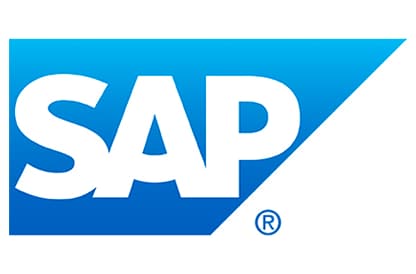Why OpenText
Why OpenText
Overview Why OpenText
OpenText brings decades of expertise to help you unlock data, connect people and processes, and fuel AI with trust
Manage and connect data
Unify data seamlessly across your enterprise to eliminate silos, improve collaboration, and reduce risks
AI-ready information
Get AI-ready and transform your data into structured, accessible, optimized information
Built-in security and compliance
Meet regulatory and compliance requirements and protect your information throughout its lifecycle
Empowering people
Overview Empowering people
OpenText helps people manage content, automate work, use AI, and collaborate to boost productivity
Customers
See how thousands of companies around the world are succeeding with innovative solutions from OpenText
Employees
Our people are our greatest asset; they are the life of the OpenText brand and values
Corporate Responsibility
Learn how we aspire to advance societal goals and accelerate positive change
Partners
Find a highly skilled OpenText partner with the right solution to enable digital transformation
How we compare
Content Management
Service Management
Deploy anywhere
Overview Deployment options
Explore scalable and flexible deployment options for global organizations of any size
Sovereign cloud
Local control. Global scale. Trusted AI
Private cloud
Unlock the value of the cloud while maintaining control and compliance
On-premises
Maintain full control of your data on your own infrastructure
Public cloud
Protect, scale, and use business information in your cloud of choice
AI leadership
Overview Aviator AI
See information in new ways
OpenText™ Aviator™ AI
AI that understands your business, your data, and your goals
OpenText™ MyAviator
Say hello to faster decisions. Your secure personal AI assistant is ready to get to work
OpenText™ Business Network Aviator™
Gain better insights with generative AI for supply chains
OpenText™ Content Aviator™
Power work with AI content management and an intelligent AI content assistant
OpenText™ Cybersecurity Aviator™
Improve your security posture with AI cybersecurity and agile threat detection
OpenText™ DevOps Aviator™
Enable faster app delivery, development, and automated software testing
OpenText™ Experience Aviator™
Elevate customer communications and experiences for customer success
OpenText™ Fax Aviator™
Turn every fax into instant action with AI
OpenText™ Service Management Aviator™
Empower users, service agents, and IT staff to find the answers they need
Aviator AI
Overview Aviator AI
See information in new ways
OpenText™ Aviator™ AI
AI that understands your business, your data, and your goals
OpenText™ MyAviator
Say hello to faster decisions. Your secure personal AI assistant is ready to get to work
OpenText™ Business Network Aviator™
Gain better insights with generative AI for supply chains
OpenText™ Content Aviator™
Power work with AI content management and an intelligent AI content assistant
OpenText™ Cybersecurity Aviator™
Improve your security posture with AI cybersecurity and agile threat detection
OpenText™ DevOps Aviator™
Enable faster app delivery, development, and automated software testing
OpenText™ Experience Aviator™
Elevate customer communications and experiences for customer success
OpenText™ Fax Aviator™
Turn every fax into instant action with AI
OpenText™ Service Management Aviator™
Empower users, service agents, and IT staff to find the answers they need
Analytics
Overview Analytics
Predict, act, and win with real-time analytics on a smarter data platform
Business Network
Overview Business Network
Connect once, reach anything with a secure B2B integration platform
Content
Overview Content
Reimagine knowledge with AI-ready content management solutions
OpenText™ Content Aviator™(AI)
Supercharge intelligent workspaces with AI to modernize work
Cybersecurity
Overview Cybersecurity
Integrated cybersecurity solutions for enterprise protection
OpenText Cybersecurity for SMBs & MSPs
Purpose built data protection and security solutions
OpenText™ Cybersecurity Aviator™(AI)
Reinvent threat hunting to improve security posture with the power of agile AI
DevOps
Overview DevOps
Ship better software—faster—with AI-driven DevOps automation, testing, and quality
Experience and Fax
Overview Experience and Fax
Reimagine conversations with unforgettable customer experiences
OpenText™ Experience Aviator™(AI)
Transform customer communications with private generative AI
OpenText™ Fax Aviator™(AI)
Turn faxes into workflow-ready data with AI
Legal Tech
Overview Legal Tech
Make smarter decisions with AI-powered legal software and services
OpenText™ eDiscovery
Accelerate eDiscovery with AI-driven speed and precision
OpenText™ Investigation
Optimize strategy with early case assessment and investigation tools
OpenText™ Core Insight
Get smarter eDiscovery with advanced TAR and automated document review
OpenText™ Core Legal Hold
Automate legal holds to eliminate risky and time-consuming processes
OpenText™ Legal Knowledge Management
Unlock knowledge and legal insights across content silos
Observability and Service Management
Overview Observability and Service Management
Get the clarity needed to cut the cost and complexity of IT operations
OpenText™ Service Management Aviator™(AI)
Redefine Tier 1 business support functions with self-service capabilities from private generative AI
APIs
Overview APIs
Build custom applications using proven OpenText Information Management technology
OpenText™ API Services
Build it your way with OpenText Cloud APIs that create the real-time information flows that enable custom applications and workflows
Device and Data Protection
Overview Device and Data Protection
Protect what matters, recover when it counts
Unified Endpoint Management Tools
- OpenText™ Endpoint Management
- OpenText™ ZENworks Suite
- OpenText™ ZENworks Service Desk
- OpenText™ ZENworks Configuration Management
- OpenText™ ZENworks Endpoint Security Management
- OpenText™ ZENworks Full Disk Encryption
- OpenText™ ZENworks Endpoint Software Patch Management
- OpenText™ ZENworks Asset Management
Solutions
Trusted Data & AI
Overview Trusted Data & AI
Secure information management meets trusted AI
OpenText AI Data Platform
A unified data framework to elevate data and AI trust
OpenText™ Aviator™ Studio
A place where you can build, deploy, and iterate on agents in your data's language
OpenText Discovery
A set of tools to help ingest data and automate metadata tagging to fuel AI
OpenText Data Compliance
A suite of services and APIs that make governance proactive and persistent
OpenText Aviator AI Services
Professional services experts who help you on your AI journey
Information Reimagined
Overview Information Reimagined
Get greater visibility and sharper insights from AI-driven information management. Ready to see how?
Knowledge reimagined
Transform daily work with enterprise content management powered by AI
Service Management reimagined
Cut the cost and complexity of IT service management, AIOps, and observability
Connections reimagined
AI-powered B2B integration for supply chain success
Conversations reimagined
Drive value, growth, and loyalty with connected customer experiences
Engineering reimagined
Agile development and software delivery? It only seems impossible
Security reimagined
Cybersecurity for the Enterprise
Decisions reimagined
Unlock insights with AI data analytics
Artificial Intelligence
Overview Aviator AI
See information in new ways
OpenText™ Aviator™ AI
AI that understands your business, your data, and your goals
OpenText™ MyAviator
Say hello to faster decisions. Your secure personal AI assistant is ready to get to work
OpenText™ Business Network Aviator™
Gain better insights with generative AI for supply chains
OpenText™ Content Aviator™
Power work with AI content management and an intelligent AI content assistant
OpenText™ Cybersecurity Aviator™
Improve your security posture with AI cybersecurity and agile threat detection
OpenText™ DevOps Aviator™
Enable faster app delivery, development, and automated software testing
OpenText™ Experience Aviator™
Elevate customer communications and experiences for customer success
OpenText™ Fax Aviator™
Turn every fax into instant action with AI
OpenText™ Service Management Aviator™
Empower users, service agents, and IT staff to find the answers they need
Industry
Overview Industry solutions
Improve efficiency, security, and customer satisfaction with OpenText
Energy and resources
Transform energy and resources operations with cloud, cybersecurity, and AI
Financial services
Boost customer experience, compliance, and efficiency with AI
Government
Reimagine your mission with government-secure information management
Healthcare and life sciences
Improve care delivery and patient engagement with AI-powered solutions
Legal
Modernize legal teams with automated, AI-powered legal tech solutions
Manufacturing
Modernize manufacturing operations and logistics to reduce costs and ensure compliance
Retail and consumer goods
Enhance consumer engagement with omnichannel retail solutions and AI
Enterprise Application
Overview Solutions for Enterprise Applications
Run processes faster and with less risk
Services
Services
Overview Services
Achieve digital transformation with guidance from certified experts
Professional Services
Modernize your information management with certified experts
Customer Success Services
Meet business goals with expert guidance, managed services, and more
Support Services
Turn support into your strategic advantage
Managed Services
Free up your internal teams with expert IT service management
Learning Services
Discover training options to help users of all skill levels effectively adopt and use OpenText products
Professional Services
Overview Professional Services
Modernize your information management with certified experts
Customer Success Services
Overview Customer Success Services
Meet business goals with expert guidance, managed services, and more
Support Services
Overview Support Services
Turn support into your strategic advantage
Managed Services
Overview Managed Services
Free up your internal teams with expert IT service management
Learning Services
Overview Learning Services
Discover training options to help users of all skill levels effectively adopt and use OpenText products
Partners
Find a Partner
Overview Find a partner
Find a highly skilled OpenText partner with the right solution to enable digital transformation
Cloud Partners
Overview Cloud Partners
OpenText partners with leading cloud infrastructure providers to offer the flexibility to run OpenText solutions anywhere
Enterprise Application Partners
Overview Enterprise Application Partners
OpenText partners with top enterprise app providers to unlock unstructured content for better business insights
Partner Solutions
Overview Partner Solutions
Discover flexible and innovative offerings designed to add value to OpenText solutions
Resources for Partners
Overview Resources for Partners
Discover the resources available to support and grow Partner capabilities
Support
Overview Customer Support
Get expert product and service support to accelerate issue resolution and keep business flows running efficiently
Resources
Overview Resources
Explore detailed services and consulting presentations, briefs, documentation and other resources
Choose your region:
Europe, Middle East and Africa
Asia–Pacific
 World Wide Technology
World Wide Technology
ALM Octane and OpenText™ team up to deliver data-driven insights into application testing effort for digital transformation project

Products and services
Outcomes
- Visibility and streamlined teamwork through ALM Octane
- Data-driven decision making with OpenText (formerly Vertica) enterprise-scale data analytics
- User-friendly ALM Octane interface and open API structure for easy integration
Challenge
Managing the testing requirements of a largescale Oracle reimplementation project with effective and scalable data analytics support.
Oracle e-business suite (EBS) is the backbone of World Wide Technology's (WWT) operations, with its key modules managing a highly complex warehouse and logistics system. When WWT decided to upgrade its Oracle implementation and move it from an on-premise installation to the cloud, it realized this would be a major undertaking. Walter Whitaker, Quality Assurance Manager for WWT, explains: “We regard this as a reimplementation with new core functionality. We’ve taken the opportunity to map and simplify our business processes to limit customization in our new Oracle implementation. The testing requirements associated with a project of this scale are huge. Thankfully we have ALM Octane to support this. Our teams are already using agile development and testing through our DevOps model and this project follows the same approach.”
Although ALM Octane is perfectly suited to the scale testing required, the WWT team struggled with reporting. Moving through the test cycles, reporting becomes more complex and involves increasingly more test data. Whitaker: “Our ambition is to become much more data-driven. We use Tableau for a lot of our reporting, and were leveraging an Open Source relational database to extract ALM Octane data. We prepare hourly reports and find that it takes 20secs to pull down the data required, and another 20secs to extract it. This 40secs response lag will only become worse over time. At the moment we’re querying 11,000 rows of test data, and this is growing by 1,000 data rows every day. Our solution just isn’t robust enough for this. We need an enterprise-level data analytics solution that gives us a much more real-time and scalable experience.”
We manage all our scale testing through ALM Octane and its ease of use has been so helpful. A clean and smart, browser-based, user interface enables us to quickly execute simple processes. The open API makes it easy to integrate with other systems, giving us much-needed flexibility.
Details
Solution
OpenText Unified Functional Testing, LoadRunner, and StormRunner Load are leveraged in conjunction with ALM Octane to optimize the automated testing effort. The project has gone through development and functional testing, involving over 1,300 test cases. It is now in the first system integration testing phase and this is where things become complex, with full end-to-end testing across different systems and organizational work streams. The WWT team worried about hand-offs of tests and how to track everything. ALM Octane enables different teams to work together, including a large off-shore team in a different time zone. By organizing tests into different test suites and using the comment fields to hand-off tasks between the team member preparing the test and the team member executing it, everything is tracked and transparent to all.
Defects are linked to requirements and their associated testing activity, so the status is always clear. Requirements are defined when an Oracle functionality needs customizing. Every requirement, and this project contains thousands, has its own agile testing process.
Whitaker likes the straightforward ALM Octane administration: “For this large project, we’re really leveraging ALM Octane’s single sign-on capabilities. We have 800 ALM Octane users and it’s very easy to add users or change permissions. People are in teams, but can also be aggregated into sub-teams for the purpose of this project. The interface is clean and modern, and our users all like working with it.”
WWT uses ServiceNow as its application development platform and ServiceNow output data is combined with ALM Octane test data for further analysis and reporting. A vital part of becoming a data-driven organization is the support of an enterprise-scale data analytics solution. Following market research, OpenText (formerly Vertica) was identified as the scalable solution WWT needed, as Whitaker explains: “As we continue our testing phases, we’re adding test data and putting more strain onto our database. We report on a wide variety of metrics; from defects and incident reports, to complex dashboards evaluating the testing quality, test coverage, user errors, severity of reported issues, and so on. Vertica (now OpenText) enables us to become far more sophisticated in our reporting capability. We can get more granular with a real-time view of our velocity. A burn-down chart shows us whether we’re ahead or behind in certain areas; a great management tool for us.”
Vertica (now OpenText) enables us to become far more sophisticated in our reporting capability. We can get more granular with a real-time view of our velocity. A burn-down chart shows us whether we’re ahead or behind in certain areas; a great management tool for us.
Results
With a multi-year project, ALM Octane really comes into its own, as Whitaker describes: “We manage all our scale testing through ALM Octane and its ease of use has been so helpful. A clean and smart, browser-based, user interface enables us to quickly execute simple processes. The open API makes it easy to integrate with other systems, giving us much-needed flexibility.”
He concludes: “As a data-driven organization, we’ll continue to leverage Vertica (now OpenText) far beyond this particular project. It helps us set goals and measure against them. We like the flexibility of generating any report we want because the data is easily available to us.”
About World Wide Technology

WWT is a technology solution provider with $10.4 billion in annual revenue and more than 4,600 employees. It serves the technology needs of large public and private organizations around the globe, including many of the world’s best-known brands.





